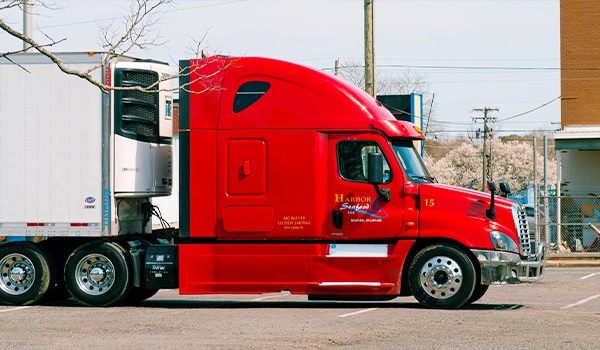
Whether you were planning on a long or short trip, it’s important to be prepared for things going wrong while on the road. Preparation can be the difference between an inconvenience and an all-out emergency. Keep in mind that there are many roads in the United States where there is little in the way of service stations, shops, or other amenities: Utah’s Interstate 70, for example, has 110 miles of completely unattended road. Fortunately, getting prepared, and staying that way, is relatively straightforward.
One thing that you can do to ensure that your safety and well-being plans are effective is to give yourself some time before departure to inspect your vehicle and to check your supplies so that you don’t miss anything. You might want to do these checks a day or two before your scheduled departure so that your trip is not delayed if you have to make a purchase or a repair.
General Truck Checklist
Before heading out, take the time to make sure that your truck is in good working condition:
Check your tires to make sure that they are in good condition and are at the right pressure. While there is some controversy about the “right” pressure for semi-truck tires, 90 or 95 psi seems to be what many professionals recommend. Don’t forget to make sure that your spare is ready to be put to use.
Check fuel, oil, coolant, and windshield wiper solution levels.
A clean cab makes for a more pleasant trip: Use a hand vacuum to clean your floors and seats. Stow paper towels, wipes, and spray cleaners so that you can easily tidy and disinfect your cab.
Locate your spare key and keep it close at hand, but not in the same place as your regular keys.
Look under the truck and make note of any possible leaks. Have those addressed before heading out.
Stow the manual in the glove compartment
Other things to remember include your commercial driver’s license, credit and debit cards, roadside assistance membership cards, and proof of both vehicle and health insurance.
Essential Tools
Make sure that you have the tools you need to address any problems, such as:
A jack and base
Wrenches
Screwdrivers
Electrical tape
Chains
Towing equipment
Socket sets
Your tool kit should also include heavy-duty work gloves and a headlamp.
Emergency Prep
Mechanical failures are not the only difficulty that you might encounter. Prepare for possible weather emergencies, natural disasters, and local issues by carrying the following:
At least one flashlight plus extra batteries.
Emergency radio with a flashlight, USB port, and hand crank: The radio, flashlight, and cell phone charger can be used even if your truck battery is dead.
Powerbank for your phone and other electronics
Additional USB cords and adapters
Flares
Blankets along with warm clothing (such as socks, gloves, and hat).
Heat packs
First aid kit (check the expiration date on items in the kit and refresh and replenish as necessary)
Garbage and waste disposal items. Have extra garbage bags and a lidded container for storing trash.
Take the climate, geography, and weather of your route into consideration and add emergency items accordingly.
Personal Items
Your choice of personal items is, well, personal. You know your habits, health, and preferences better than anyone, so the following list is just a suggestion:
Medications (over the counter and prescription)
A hard-copy list of important phone numbers in case you lose or damage your phone
Personal hygiene products
Grooming items, such as combs, brushes, and shavers
Entertainment
Even if your schedule doesn’t offer a lot of time for rest and relaxation, entertainment is still important. Podcasts and audiobooks, along with music, can be a great accompaniment while you are driving. If you get into a traffic jam, need to take a break, or there is some kind of an emergency that forces you off the road, you’ll want to make sure that your phone or tablet is loaded with entertainment options.
Food and Beverage
Even if you don’t care to snack while driving, having some emergency food and beverage on hand is a good idea. Bottled water and ready-to-eat items, such as protein bars and jerkies are a must, along with:
Shelf stable, easy-to-eat fresh fruit such as apples, pears, and bananas
Dried fruit snacks
Trail mix and nuts
Canned and bottled coffees and teas
If you have a truck microwave and refrigerator, you will have more options, including heat-and-eat and frozen meals.
Other items to bring include:
Plates, bowls, and cutlery
Napkins
Spray dish detergent
A high-quality thermos
Electric kettle or coffee maker
The CLC Lodging mobile app can also help you find and book truck-friendly hotels during your travels. Download and check out the app today!
Recent Posts
-
.jpg)
U.S. Trucking Transportation Trade Shows and Conferences
Jan 23, 2025 | -

Demolish the Biggest Frustrations in Construction Travel
Nov 19, 2024 | -

Thanksgiving 2024: What Restaurants are Open for the Holiday?
Nov 19, 2024 |